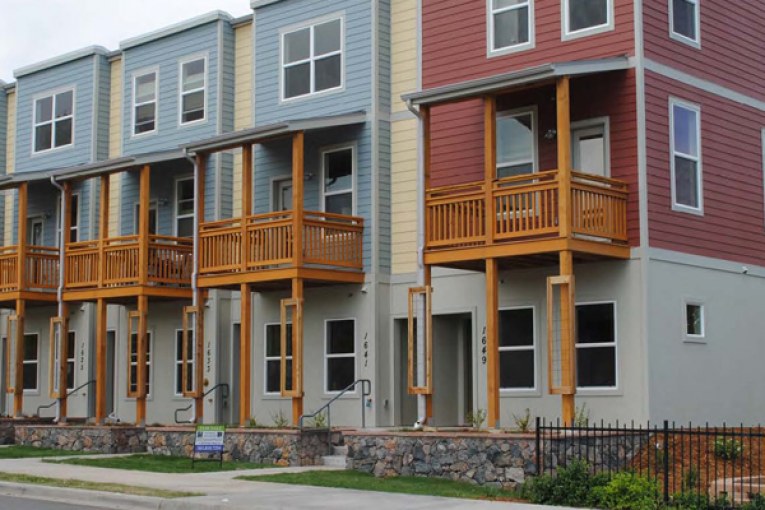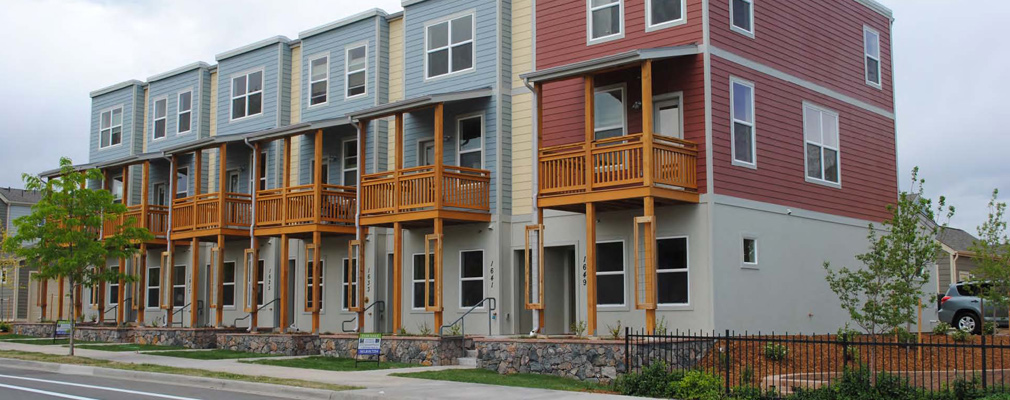

An article that appeared in the San Francisco Chronicle on Friday looks at the impact of Senator Scott Wiener’s sweeping bill, SB 50.
As noted in the article, a group called “Walnut Creek for Controlled Growth” has helped to lobby to “preserve that quality of life as the city has grown in recent years to accommodate the Bay Area’s economic boom.”
Now they worry that such decisions could be taken out of their hands by SB 50.
The article notes SB 50 “would loosen local control over housing development” and “has generated controversy for its aggressive approach to tackling California’s housing shortage by promoting taller and denser construction, especially around public transit.”
However, it also warns that “it’s not just neighborhoods near major transit stops that could be transformed.”
As we noted a few weeks ago, “Provisions in the bill that have gotten far less attention would essentially eliminate single-family zoning in the state by allowing any home or vacant lot in a residential area to be converted to up to four units.”
Paul Wickboldt, a member of the group Walnut Creek for Controlled Growth, told the Chronicle, “Many of us still consider this a suburb… And there’s a concern that we would grow in density in  areas where we would lose that.”
areas where we would lose that.”
In more populous counties, SB 50 would direct the state to create “jobs—rich areas” where density restrictions would be removed. The Chronicle notes: “That would open the door for the construction of apartment buildings in places that have traditionally been limited to single-family homes, provided they met other local design standards such as height limits.”
Such policies could lead to significant change for many of the more suburban areas of the East Bay, for starters.
The article lists a number of more suburban cities in central Contra Costa and Eastern Alameda: Pleasant Hill, Walnut Creek and Lafayette down through Alamo, Danville and San Ramon, to Dublin, Pleasanton and Livermore.
They note an analysis by Berkeley researchers, which finds that “nearly all the land in these cities is in a ‘jobs-rich area.’” Worse yet, unlike areas in San Francisco that are more urban, “mass transit options beyond the East Bay hills tend to be limited — especially in communities not connected to BART.”
That would seem to go against the notion of transit-oriented development, but as the Chronicle explains, “this part of SB50 is intended to ensure that well-to-do suburbs contribute to solving the state’s housing shortage.”
Part of this is in response to criticism which Senator Wiener received that the bill would “have a disproportionate effect on low-income communities.”
On the other hand, the argument goes, “Allowing denser housing in ‘jobs-rich areas’ will mean shorter commutes because people will be able to live closer to where they work.” He argued, “It will also increase access to wealthy cities that have historically been unavailable to poor people and people of color, in part because of single-family zoning laws.”
But this idea itself is causing pushback, alarming many that “enabling denser development will overwhelm the infrastructure and change the character of their cities.”
The Mayor of Walnut Creek, Cindy Silva, for instance, “defended single-family homes as intrinsic to the personality of the state.”
These communities now feel that Sacramento is “picking on them” and they believe “that the cause of the Bay Area’s housing crisis is not their zoning laws, but a failure by San Francisco and Silicon Valley to allow nearly enough new homes for the workers at the tech firms they have been happy to welcome.”
Mayor Silva went so far as to compare this to “colonization, where the East Bay is the housing for the three big cities” of San Francisco, Oakland and San Jose.
“The Legislature is hell-bent on solving the problems of San Francisco, San Mateo, Santa Clara (counties) on the back of everybody else,” said Newell Arnerich, a city councilman in Danville.
They also argue that they have already been meeting state mandates for new units in recent years. And they wish to preserve “their suburban flavor” and “concentrate the expansion around BART stations, leaving the rest of their cities mostly untouched.”
This has led many local government across the state to line up against SB 50, especially in suburbs that “could see their zoning rules upended because of their designation as ‘jobs-rich areas.’”
But not everyone, of course, agrees with this view. Some believe that “overhauling decades-old zoning rules is exactly what’s needed.” Many point out that “only top executives can afford to live in such exclusive cities, while their employees are forced to find housing far away.”
One organizer said, “The character of a neighborhood isn’t its buildings. The character of a neighborhood is the people who live there… And a lot of the people who make it interesting to live in the Bay Area are being priced out.”
Some like Senator Steve Glazer from Orinda argue that “the measure should focus on the ‘big urban cities’ where the problem is concentrated. He has not taken a position on SB50 but suggested a better solution would be to bring jobs to the suburbs.”
—David M. Greenwald reporting







“Fascism (/’fæ??z?m/) is a form of radical, right-wing, authoritarian ultranationalism, characterized by dictatorial power, forcible suppression of opposition, and strong regimentation of society and of the economy”
If you substitute “California Exceptionalism” for “ultranationalism”. You have Scott Weiner.
Just a bit of hyperbole. You’re going to have to be much more specific on how you see Scott Weiner working through the state legislative process manages to hit each of these attributes.
It’s part of a larger body of legislation whose common theme is central control by Sacramento.
I was for this bill but I see a lot of issues both ways that has put me closer to the fence sitting camp. On the one hand, I agree with those who want to preserve their communities as suburbs but on the other hand, in so doing creates privileged enclaves.
This does not add up. SB 50 says there is an urgent need for more housing. Recently, Dan Walters posted an article on diversity saying that growth in California has slowed. Last year added 128,000 and 77,000 new houses were built. Can anyone explain the urgent need if growth has slowed down and an adequate number of houses have been built?
Shirley: It probably depends upon who you ask.
There’s evidence that higher housing prices in California actually reduce population growth. Maybe not the “preferred” method of doing so, but perhaps better than sprawling solutions (which there’s still no shortage of – in addition to the governor’s efforts).
https://www.sacbee.com/news/politics-government/capitol-alert/article229910029.html
Some believe that the primary problem is that incomes are not keeping up (not lack of housing), especially at the lower-end of the scale. In other words, a lack of “affordable” (or “Affordable”) housing, compared to incomes. Many believe that the Wiener’s efforts don’t adequately address this, and could very well make things worse.
https://www.motherjones.com/kevin-drum/2019/04/we-have-an-income-crisis-not-a-housing-crisis/
Shirley… there is a “backlog” (previous unmet needs) from previous years… your question would be “spot on” except for that…
From article, below:
https://www.sacbee.com/news/business/real-estate-news/article230210744.html
Seems like Bakersfield (for millennials) is becoming like the Sacramento region was (for baby boomers):
https://www.sfgate.com/expensive-san-francisco/article/bakersfield-moving-grass-is-greener-millennials-13836571.php?ipid=dontmisssfghp
(Including some of the same biases – initially at least.)
Actually, I suspect that there’s quite a few millennials who can still easily afford the Sacramento region.
Regardless, it frankly takes a degree of stupidity (or at least stubbornness), to remain in an area where one cannot afford to do so.
Would you apply that to: “The Homeless” and “West Coast Cities” ?
I asked Don to change that wording, as it was too confrontational. But really, it is kind of stupid to cling to biases regarding other areas, such as I’ve witnessed (and previously felt myself) regarding cities in the valley (or anywhere, for that matter).
I wouldn’t necessarily apply that concept regarding “homeless” people, because (by comparison) West Coast cities may be among the most welcoming and supportive of them. (Not to mention the weather, to which they are more exposed than others.)
As a side note, Charlie Chaplin apparently hired some homeless people from Sacramento almost a hundred years ago, to appear as extras in his movie the “Gold Rush” – partly filmed at Donner Summit. (Just thought that was an interesting “factoid”, and shows how long it’s been an issue.)
That’s not necessarily the case, for millennials who are starting careers in the Bay Area, for example. Although I’d probably pick “Boise” (as mentioned in the article), over “Bakersfield” – if possible.
To clarify, places such as the Bay Area might be among the BEST places for homeless people (given the level of support and weather), but among the WORST places for those starting their careers (and paying rent), etc.
And, it seems like many (but not all) folks have figured that out.
I haven’t (yet) watched the program you recommended, regarding the situation in Seattle.
https://www.charliechaplin.com/en/biography/articles/5-The-Gold-Rush
(Not exactly “PC-correct” terminology, but that’s what the quote says regarding the film.)
Oh, and speaking of West Coast cities, origin of the term “skid row” (and history with the homeless):
https://en.wikipedia.org/wiki/Skid_row
I think I first heard about the origin of the term when taking the “underground” tour in Seattle, years ago.
In LA it is generally referred to as “the nickle” as it’s centered on 5th street.
“In LA it is generally referred to as “the nickle””
Not by the literate ones. No spellcheck app, Hoch?
Here’s some quotes from an excellent article regarding concerns related to SB-50:
This is probably the clearest explanation of the problem that I’ve seen.
Ron O.: I agree. The build-baby-build trickle-down developer apologists will keep pushing their deregulatory schemes though.
Studies like these make it clear though that SB50 is just a real estate (giveaway) bill, not a housing bill.
(Needless to say, I’m not. But, I’m also not entirely surprised.)
https://www.sacbee.com/news/politics-government/capitol-alert/article230481529.html?